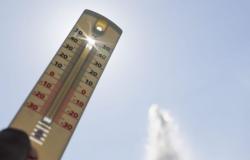In its editorial of August 21, 2024, the newspaper The World headlined “Russia’s winning return to Africa”. The analysis supporting this observation took into account Russia’s new diplomatic and military involvement with countries such as Mali, Niger, Burkina Faso and the Central African Republic.
It also included the increased political influence that this country seems to have obtained from regimes which make the break with the West (Mali, Niger, Burkina Faso) or its distancing (Senegal, Central Africa) one of the axes of their political strategy of emancipation and rediscovered sovereignty.
Of course, this new political posture, spontaneous or provoked from outside, appeals to a part of local public opinion, who sees it as an opportunity to finally turn the page on colonization and the neocolonialism that followed. By getting closer to Russia, are we not aligning ourselves with the global South, with its values which are not those of the West?
The Economic Alternatives newsletter
Every Sunday at 5 p.m., our breakdown of the week’s news
On this fertile political ground, Russia’s zone of intervention quickly expanded, mainly in what was called, a few years ago, France’s backyard. That is to say this geographical area where the former colonial power, via defense agreements and economic and financial agreements, until recently still provided part of the sovereign functions generally devolved to sovereign countries.
This French presence from another age has seen itself discredited by public opinion in the countries concerned as it fails to confront the rise of terrorism through a reinforced military presence, as well as its failure – since the decolonization – to help these countries get out of mass poverty, by themselves and with external help.
A failure carried by France, but also by the rest of Western countries and the major institutions they control such as the International Monetary Fund (IMF) and the World Bank.
The promise to do better than the West
Russia would therefore have succeeded in seducing certain African countries by claiming that it was able to do better than France and the West in its support for the security of these countries and respect for their sovereignty, as well as in terms of economically in the exploitation of the natural resources of its new partners.
Unlike China, very active on the continent, but which makes non-interference in the sovereign affairs of these States its diplomatic trademark, and has never excluded the presence of Western countries in its zones of intervention, Russia’s strategy is much more divisive.
Russia’s support for certain African countries presents itself as a credible alternative to Western influence
Its support presents itself as a credible alternative to Western influence, particularly that of France which, after decolonization, remained neocolonial for too long and therefore co-responsible for degraded situations.
The existing states, which have little democratic legitimacy, find it a way to seduce a part of their public opinion wishing to break with the colonial power of the past. In terms of human rights, they also find the opportunity to disconnect cheaply from a universalist frame of reference presented as the false nose of values imposed by the West.
But what does the Russian presence really bring to the countries of the Sahel strip? Is it really a « winning return » ? After several months of cooperation, we can try to sketch an initial assessment.
China’s disengagement
On the security level, Russian support for the fight against terrorism does not seem very effective. The massacres of civilian populations continue in all the countries concerned and the local armies, now supported by Russian forces, demonstrate their impotence every day in Mali, Burkina Faso, and Niger.
In addition, as has been the case in Burkina Faso since the end of August 2024, some Russian soldiers are already leaving Africa to reinforce the needs of their army engaged on the Ukrainian front. Russia’s capacity to guarantee a long-term presence is not assured.
Secondly, Moscow does not appear at all able to provide proof of the effectiveness of the implementation of a new self-centered development model, capable of improving the economic and social situation of these countries without aid. Western. The economic and financial situation in the area remains worrying with growing debt and increasing poverty.
The economic and financial situation in the area remains worrying with growing debt and rising poverty.
However, China’s disengagement from Africa is now underway, and its new financial commitments are in free fall despite the promises of Chinese President Xi Jinping, during the Sino-Chinese cooperation summit bringing together around fifty African heads of state. on September 5, 2024, to disburse $50 billion in three years on the continent.
The Chinese economic crisis has been there, and sovereign loans granted to sub-Saharan Africa by Beijing fell below the $1 billion mark in 2023, its lowest level in nearly twenty years according to the IMF.
An economy of predation
At the same time, Russia’s average economic power does not allow it to help Africa economically. Especially since its resources remain almost exclusively focused on its war economy.
For African regimes having chosen the Russian option, it is therefore devoid of any additional aid on an economic and financial level. Worse, the excessive exploitation of the natural resources of these countries, as practiced by the Wagner militia and practiced today by the Russian army, goes against local sustainable development.
It is an economy of predation, specific to a generalization of corruption, which has been put in place and adapts very well to mass poverty and authoritarian regimes. No improvement in security observed following Russian involvement, therefore, and a weakening of the economic, social and financial situation of the countries concerned.
We can speak of a losing return for the few authoritarian African regimes having chosen the Russian path
Added to this is the emergency loss of Western and particularly French support for aid flows at both bilateral and multilateral levels (Bretton Woods institutions), as well as the loss of the most generous debt relief treatments. debt practiced by the Paris Club, a group of creditors for which France provides the secretariat.
Rather than talking about « winning return » of Russia in Africa, we can rather speak of a losing return for the few authoritarian African regimes having chosen this path. The addition risks being particularly cruel for the populations concerned.





